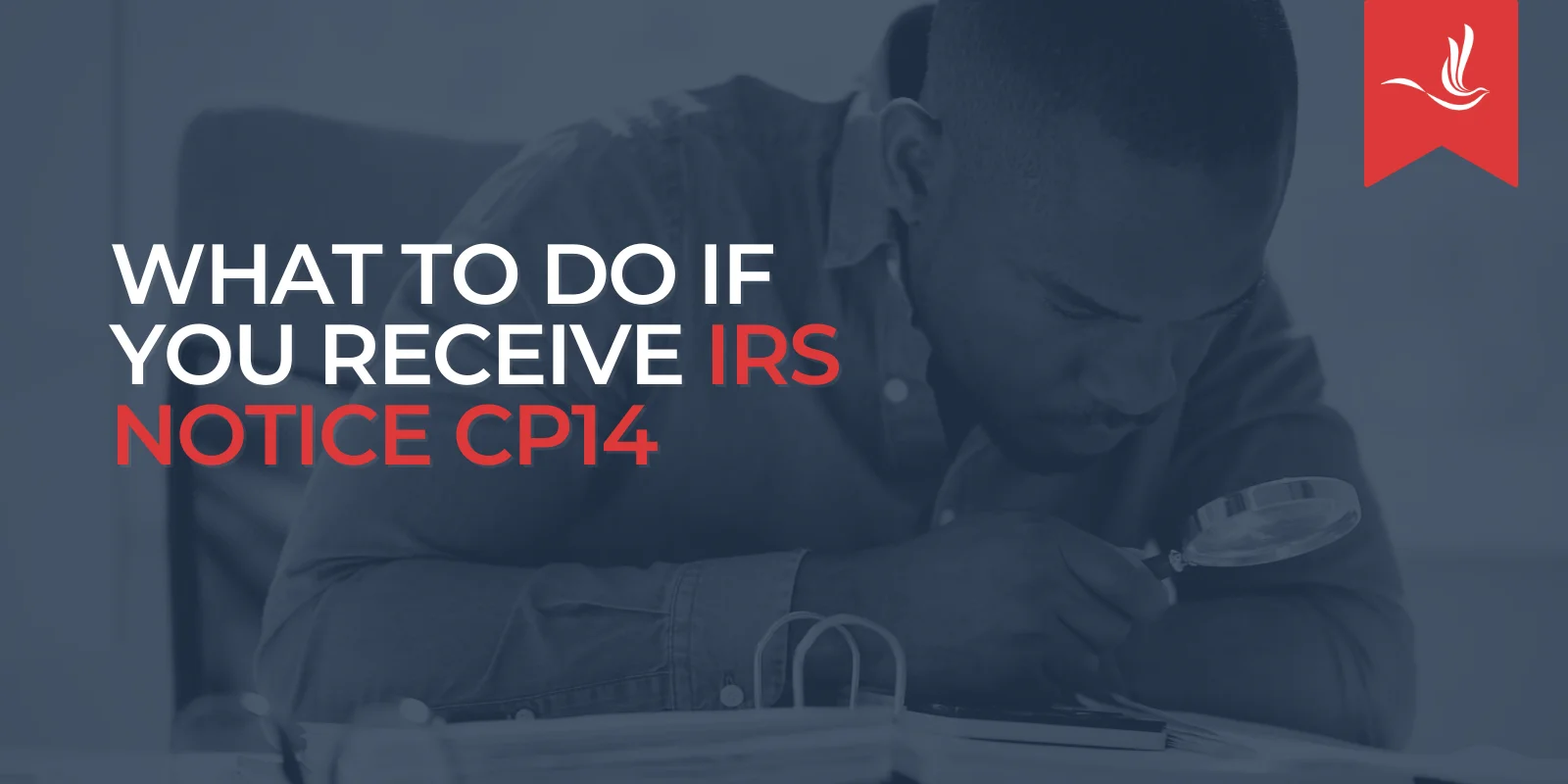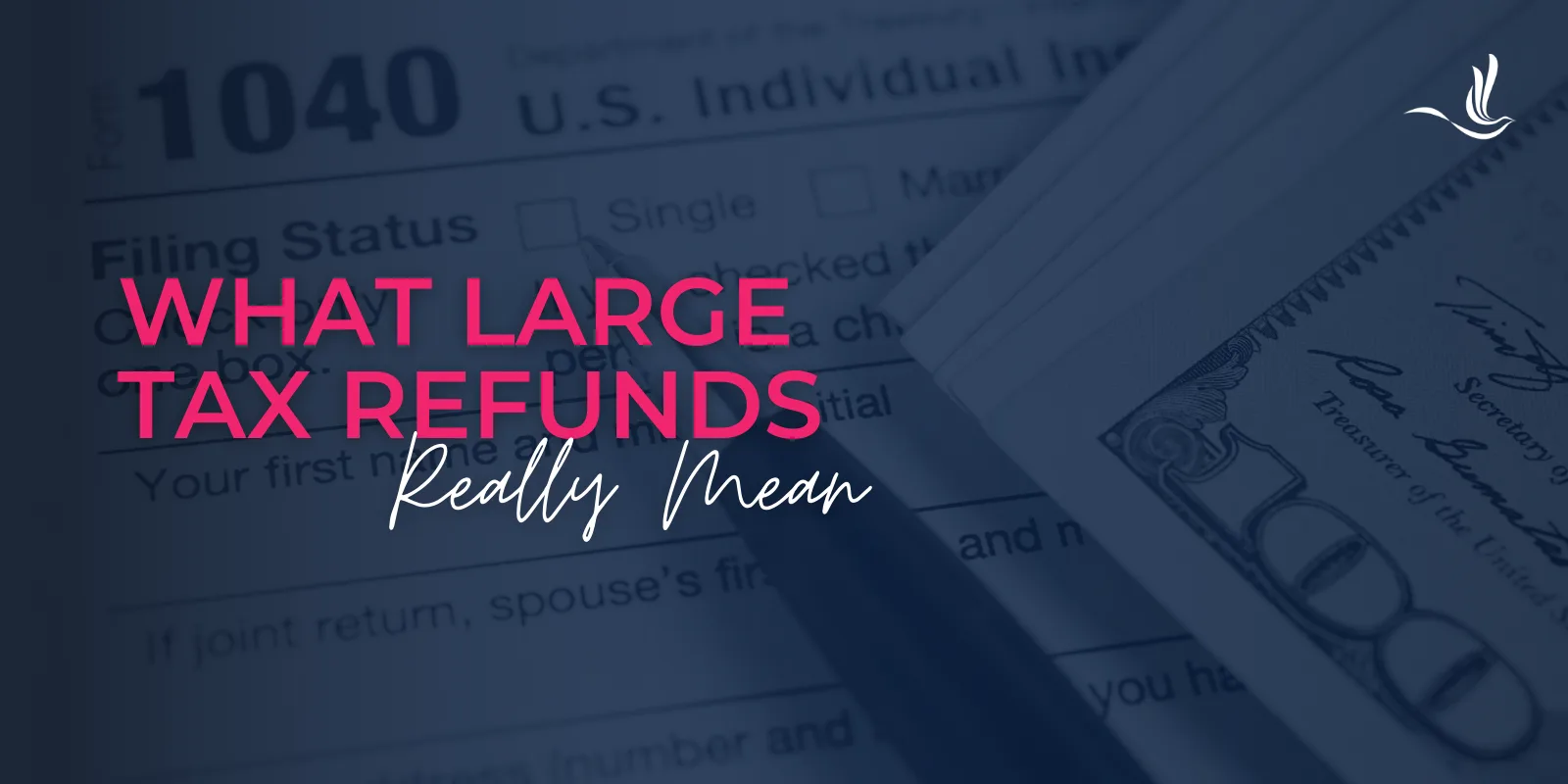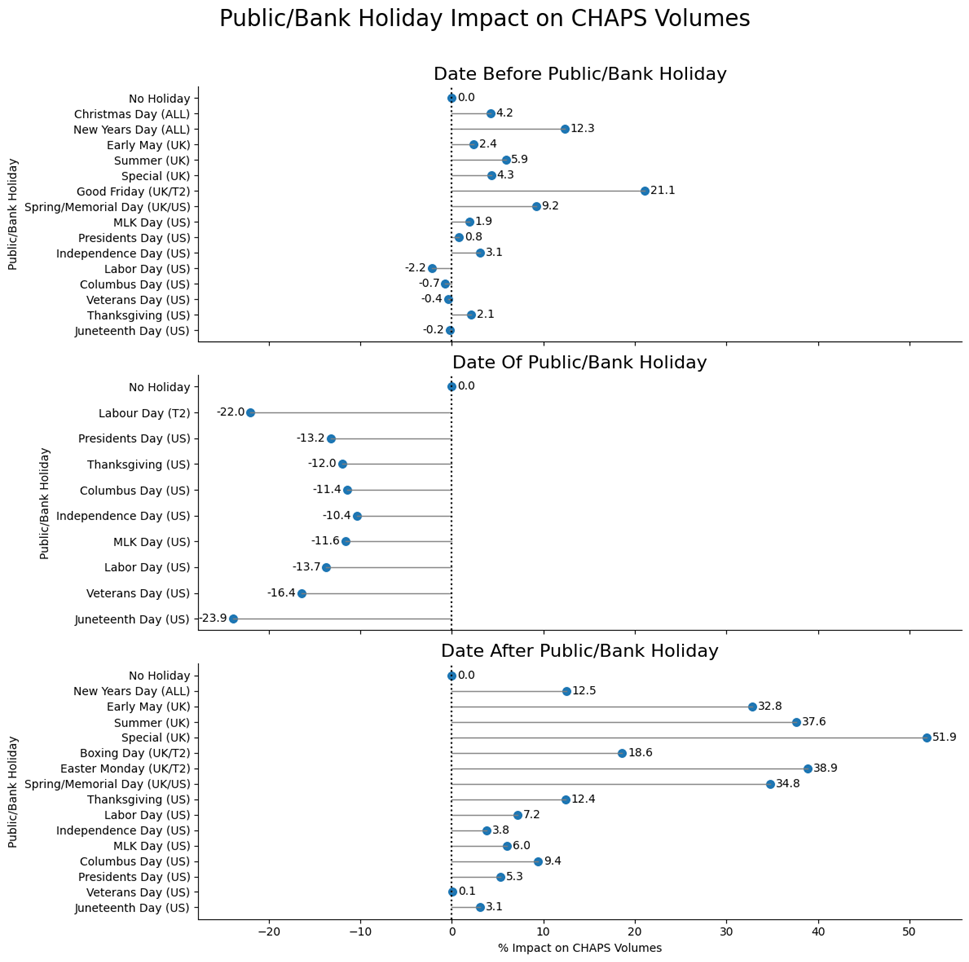Receiving an IRS Notice CP14 can be stressful, but understanding what it means and how to respond is the first step toward resolving the issue. This notice is the first formal communication from the IRS indicating that you owe unpaid taxes. Ignoring it could lead to additional penalties and interest, so it is essential to address the situation promptly. Here’s an overview of IRS Notice CP14, as well as what to do if you receive it.
Understanding IRS Notice CP14
The IRS sends Notice CP14 to inform you that you have a balance due on your taxes. It is the first bill issued for unpaid taxes and includes the amount owed, the tax year in question, and the payment deadline. The notice may be triggered by various situations, such as an underpayment of taxes, errors in your tax return, or missing payments.
For example, if you filed your tax return but failed to pay the full amount due, the IRS will issue this notice to alert you to the shortfall. Alternatively, if the IRS corrected a mistake on your return that increased your tax liability, Notice CP14 would reflect the updated amount.
Steps to Take When You Receive Notice CP14
Receiving an IRS Notice CP14 can be an unexpected and unsettling experience. However, it is crucial to remember that this notice is simply the IRS’s way of communicating a balance due on your taxes. Addressing it promptly and methodically can prevent further complications and additional costs. Here are the key steps to take when you receive Notice CP14 to ensure a smooth resolution.
Read the Notice Carefully
Begin by reviewing the notice in detail. Confirm that the tax year, the amount owed, and the payment deadline are accurate. This will give you a clear understanding of the issue and the urgency of addressing it. Pay special attention to any explanations provided for the balance due.
Check for Errors
Compare the details in the notice with your own tax records. Look at the tax return you filed for the year in question and cross-check the figures. If you discover a discrepancy, such as an income amount that you did not report or a deduction the IRS disallowed, determine whether the IRS’s calculation is accurate.
For instance, if you claimed a deduction for medical expenses but failed to provide the necessary documentation, the IRS may have removed it, resulting in a higher tax liability. If you believe the IRS made a mistake, be prepared to gather supporting evidence to dispute the notice.
Determine How to Respond
If the notice is correct, you can resolve the issue by paying the amount owed. If you disagree with the notice, you can file a dispute. Responding quickly is vital to avoid accruing additional penalties or interest.
Payment Options
There are several ways to pay the amount indicated on Notice CP14. The IRS offers online payment options through its Direct Pay portal, where you can use your bank account to make a one-time payment. Credit or debit card payments are also accepted, though processing fees may apply.
If you are unable to pay the full amount immediately, you can set up an installment agreement. This allows you to spread the payments over time. For example, a Partial Payment Installment Agreement (PPIA) may be available if you cannot afford the full monthly payments. To qualify, you must provide detailed financial information to the IRS. Another option is submitting an Offer in Compromise, where you negotiate to settle your tax debt for less than the full amount owed.
For those who prefer traditional methods, payments can be mailed to the IRS using a check or money order. Ensure that you include your name, address, Social Security number, and the tax year on the payment to avoid processing delays.
What Happens If You Ignore IRS Notice CP14?
Ignoring IRS Notice CP14 can lead to significant consequences. Interest on the unpaid balance will continue to accrue, increasing the total amount owed. Additionally, the IRS may impose penalties for late payment, further compounding the debt.
Failure to respond may result in the IRS taking enforcement actions. These can include filing a federal tax lien against your property or initiating a levy to seize assets such as wages, bank accounts, or other property. For example, if you have unpaid taxes of $10,000 and do not respond to the notice, the IRS might garnish a portion of your paycheck until the debt is fully paid.
How to Avoid Future IRS Notices
To reduce the likelihood of receiving future IRS notices, ensure that your tax returns are accurate and complete. Double-check your calculations and verify that all required forms are attached. Timely payment of your tax liability is also crucial.
Using tax preparation software or hiring a professional can help minimize errors. For example, a certified tax professional can identify potential discrepancies and guide you on how to avoid common mistakes, such as underreporting income or overstating deductions.
When to Seek Professional Help
Certain situations may warrant seeking professional assistance from a tax professional. If you have a complex tax issue or believe the IRS has made an error, a tax professional can help you navigate the dispute process. Professionals can also assist in negotiating payment plans or resolving your tax debt through options like an Offer in Compromise. For example, if you own a small business and receive Notice CP14 for unpaid payroll taxes, a tax professional can help determine whether you qualify for relief or whether the notice contains errors related to your business filings.
Frequently Asked Questions
Receiving IRS Notice CP14 often raises many questions, especially for taxpayers unfamiliar with IRS communications. Here are some of the most common concerns, providing clarity and guidance on how to handle this situation effectively.
What Should I Do if I Cannot Pay the Full Amount Owed?
If you cannot pay the full amount owed, you should contact the IRS to explore payment options. Setting up an installment agreement can allow you to pay over time, while an Offer in Compromise may help you settle for less than the full amount. Always communicate with the IRS to avoid additional penalties.
Can I Dispute IRS Notice CP14?
Yes, you can dispute the notice if you believe it is incorrect. Review your tax records and gather evidence to support your claim. You can file an appeal with the IRS or provide additional documentation to clarify discrepancies.
How Quickly Should I Respond to the Notice?
It is best to respond to Notice CP14 as soon as possible. The notice includes a payment deadline, usually 21 days from the date of issuance. Prompt action can help you avoid accruing further interest and penalties.
Is a CP14 a Civil Penalty?
No, a CP14 is not a civil penalty. It is a notice that informs you of a balance due on your taxes. However, if the balance remains unpaid, additional penalties and interest may apply.
What Comes After a CP14 Notice?
If you do not respond to a CP14 notice, the IRS may escalate collection efforts. This could include sending additional notices, like CP501, filing a federal tax lien, or initiating a levy to collect the owed amount from your wages or bank account.
What Happens If I Received a CP14 But Already Paid?
If you have already paid the balance due, verify your payment against the IRS records by checking your account on the IRS website or contacting them directly. Payments made close to the notice date may not have been processed at the time the notice was issued. Retain proof of payment for reference.
Do I Need a Tax Professional to Handle Notice CP14?
While it is not mandatory, a tax professional can be extremely helpful, especially in complex cases. They can assist with disputes, negotiate payment plans, and ensure compliance with IRS requirements, giving you peace of mind.
Tax Help with IRS Notice CP14
Receiving IRS Notice CP14 can be alarming, but addressing it promptly is the key to resolving the issue. By understanding the notice, verifying its accuracy, and choosing the right response, you can minimize penalties and interest while working toward a resolution. Whether paying the balance, disputing the notice, or seeking professional guidance, taking action ensures that you remain in good standing with the IRS. For more information about payment options and installment agreements, visit the IRS website. If you need assistance, consider reaching out to a tax professional who can provide personalized guidance and support. Optima Tax Relief has over a decade of experience helping taxpayers get back on track with their tax debt.
If You Need Tax Help, Contact Us Today for a Free Consultation
Publisher: Source link











